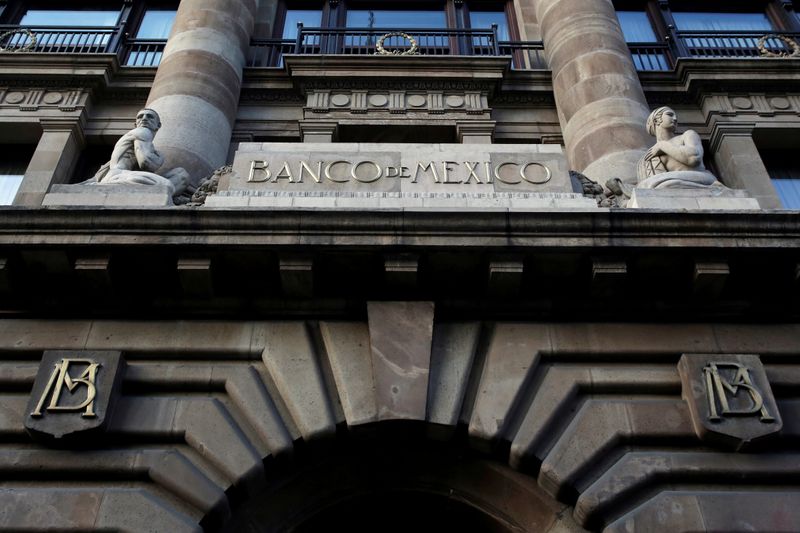By Dave Graham
MEXICO CITY (Reuters) - Mexico's room for maneuver on monetary policy is restricted by recent economic shocks that have inflated local risk premia and cast a pall over the growth outlook, minutes from the central bank's latest rate decision showed on Friday.
The peso has hit a series of record lows against the dollar, and bond yields on sovereign debt have leapt since a price war hit crude oil prices last month and the coronavirus outbreak battered expectations for the Mexican economy.
The crisis prompted the Bank of Mexico on March 20 to make a surprise out-of-cycle 50 basis point cut of its benchmark lending rate to 6.50%, backed by four out five of its board members. One, Javier Guzman, voted for a 25-point reduction.
The Bank of Mexico's rates have been among the highest among western economies, but the impact of the crisis is reducing its range of options, the minutes showed.
"The majority (of the bank's board) took the view that given the higher risk premia, there may not be such broad scope in Mexico's relative monetary policy stance as is perceived," the central bank said in a statement.
The peso
Raul Feliz, an economist at the CIDE think tank in Mexico City, said the peso slump had the effect of stoking inflationary pressure.
"So when you consider that rates haven't come down much, but the currency has depreciated a lot, monetary policy conditions have relaxed considerably," he said. "That's what (the bank) is saying. That is, that there's not so much scope to cut."
A central bank poll of analysts forecast the bank's main lending rate would be at 5.50% by the end of 2020.
Some banks forecast the economy could shrink 8% this year, while the oil price crunch has added to the woes of heavily-indebted state oil firm Petroleos Mexicanos (Pemex).
In its minutes, Banxico, as the central bank is known, said the economic outlook had deteriorated rapidly.

The majority of the bank's board felt Pemex's financial situation, "which was already fragile, has become more complex" due to falling oil prices. That and lower growth will make Mexico's financial accounts more vulnerable, the minutes added.